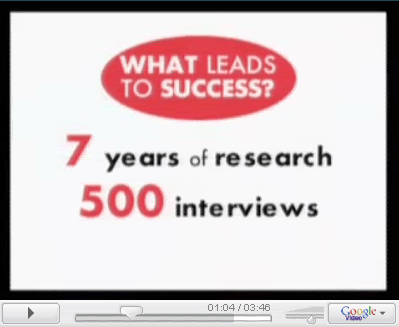We’re continuing to explore ways for you to overcome another of the three obstacles to mastery of any skill identified by my mentor Richard Bandler (co-developer of NLP)…
- over-reliance on focal vision
- internal dialogue
- a feeling of hesitation
Last time, we looked at ways to open up your peripheral vision. Today, we’re going to play with turning off internal dialogue.
The chattering monkey
Internal dialogue is the term for the voice(s) people speak to themselves with. Internal dialogue is often out of consciousness, but as you start to become more aware of it, it becomes much easier to hear it consciously. In some eastern traditions, internal dialogue is referred to as ‘the chattering monkey’, and years of practice are spent in meditation with the aim of getting the monkey to stop chattering (among other things.) The reason for this is that they believe that internal dialogue can be a barrier to clear perception and enlightenment.
From my perspective, internal dialogue is often the channel people use to ‘beat themselves up’, reinforce limiting beliefs and generally stop themselves having more fun in their lives, so it’s nice to know that you can get more control over it & make it quiet. The really good news is I’m going to show you how you can do this fast.
By the way, you may have noticed that you went quiet on the inside while practicing last week’s exercises on peripheral vision. If that way works for you, great! You’ve managed to eliminate two of the obstacles at one go.
Mind & body are one system
The first technique to switch off internal dialogue is one I learned a few years ago. I’ve used it consistently ever since.
1) Stick out your tongue & grasp it gently but firmly between your thumb & forefinger. Wait a few moments as you continue to breathe. You may well become quiet inside.
This works on the basis that mind & body are one system. Internal dialogue is accompanied by tiny micro-muscle movements of the tongue & larynx. When these movements are restricted by your thumb & forefinger, the internal voice stops. Now, I know what you’re thinking – it’s not very practical to go around with your tongue clasped between your fingers, so part two is as follows:
2) If exercise 1 works well for you, gently place the tip of your tongue against the roof of your mouth just behind your front teeth (continue to breathe easily.) You will stay quiet.
I use this approach when I’m doing one to one work with people. It allows me to quieten down on the inside so that I can put all my attention on them & what they’re saying & doing. It also allows me to really watch & listen, because I’m not inside my head having conversations with myself about what I think is going on…except when I do. When I catch myself talking to myself when I should be in ‘watch & listen’ mode, I merely do the following:
3) With a soft, gentle & patient tone, go inside & say to yourself "Shhhhhhh, shhhhhhh", like you would if you were soothing a little baby. Allow yourself to smile on the inside & really feel a sense of patience with the monkey. It may take up to a minute before you go quiet inside.
The next approach is one of the first I ever learned, and is incredibly simple.
4) Go inside your mind & find the volume control for internal dialogue (usually either a dial or a slider.) If you can’t find one, just imagine one – it will work just as well for our purposes. Now turn the volume control up & hear the dialogue get louder. Turn it down & hear it get quieter. Then turn it all the way off. Quiet.
The final approach is one I learned from directly from Richard Bandler. I only tend to use it when I’m trying to pay attention on the outside but some nagging thought keeps drawing my attention inside.
5) In a firm but loving tone of voice, say "Shut the *!&% up!" inside your head. Repeat as necessary.
No one approach works for everybody, but each of these approaches will work for some people. Practice when you are relatively relaxed and have some time, and you will find the ones that work best for you. As you begin to get into the habit of using them systematically & consistently, you will really start to reap the benefits.
More advanced
One of your core skills should be your ability to detect patterns in people’s language and behaviour. I’ve found that being able to switch off internal dialogue has massively increased my pattern recognition abilities. Go into peripheral vision, go quiet on the inside, and allow your sense to be flooded with information from the other person. This is a way you can give your unconscious permission to start detecting patterns which you may not have noticed in the past.
One of the things to bear in mind with all this stuff is that these are not just ideas, they are skills. If you want to know about them, read the exercises. If you want to be able to do them, do the exercises. When you do the exercises, you get the results, and you can start to have more of what you want in your life.
Next time we’ll be talking about ways to disengage that feeling of hesitation in Mastery of any skill (Part III). Until then, shhhhhhh
Thanks for spending 3 minutes with me...
The best is yet to be!
Jeffrey Stanton
Your Trusted Advisor For Life
PS. One of the fastest ways to build a successful referral based business is by training. Now, with me, I like to invest significant time immersing myself in training, while some people prefer to take it in bite-size chunks. Whatever your preference is, now is the best time to contact me.
If you have found this tip useful, please share it with any friends, family, colleagues and associates who you think will be interested. Feel free to print it (with credit and subscription information) and continue to enjoy the tips. I am always grateful for any comments, criticisms or other feedback that you may have. Please send them to feedback@jeffreysjournal.com


































No comments:
Post a Comment